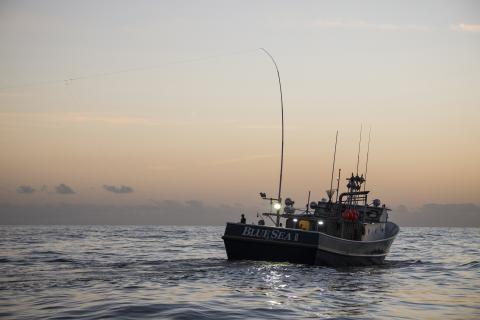After four successful years, the National Fish and Wildlife Foundation and NOAA entered the fifth year of the Deepwater Horizon Oceanic Fish Restoration Project. This 2021 season began on January 1 and will end June 30.
Eleven fishermen from Florida and Louisiana are participating. They’re stepping up to take a voluntary break from pelagic longline fishing. They’ll also have options to use alternative gear that reduces bycatch of non-target species to continue to bring fish to market.
The six-month break from fishing and reduction in bycatch provided by alternative gear are helping to restore some of the injuries to fish caused by the 2010 Deepwater Horizon oil spill. Restored fish populations will result in a healthier Gulf and support healthy fisheries, benefiting fishermen and others whose livelihoods rely on them.
The project has already seen success:
- Participants have reduced fishing pressure on pelagic fish.
- Data collected shows that the amount of bycatch when using alternative gear has been minimal compared to traditional gear, and many of those non-target fish that were caught were released alive.
- Participants have said they’re finding it rewarding to help restore fish in the Gulf.
- Participants are invested in making alternative gear more accepted, effective, and widely used for future generations of fishermen.
Participants from the Gulf of Mexico pelagic longline fishery, which targets species such as yellowfin tuna and swordfish, are a part of this restoration partnership. Pelagic longlines can be more than 20 miles long and sometimes results in incidental catch, bycatch, of non-targeted fish and animals. Some of this bycatch can perish before the fishing line is hauled back.
For the 2021 season, the number of applicants exceeded the targeted capacity of the project. Seven commercial fishermen from Louisiana and four from Florida were selected to participate.
The Oceanic Fish Restoration Project is funded from the early restoration funds provided by BP as part of the legal settlement for the spill. It began in 2017 and is expected to continue through 2022.
Want more details about the project? Visit NFWF’s website >>
Learn more about what participants have said about past project years >>


